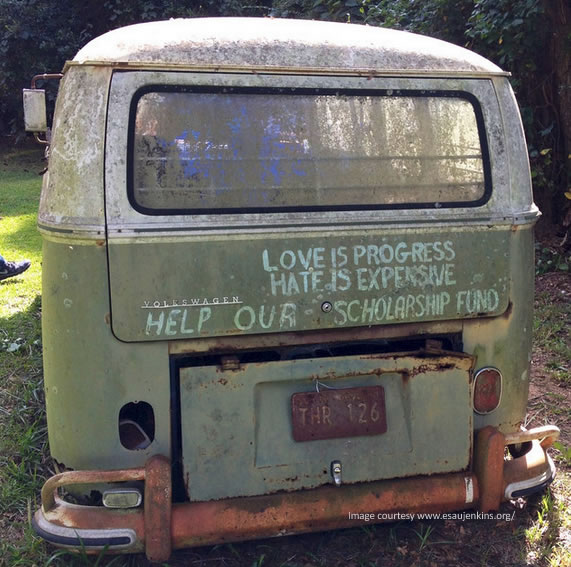STATEHOUSE REPORT | ISSUE 23.23 | June 7, 2024
BIG STORY: State book regulation questioned
MORE NEWS: S.C. ends AP African American Studies course
LOWCOUNTRY, Ariail: Run over
COMMENTARY, Brack: South Carolina punches above its weight
SPOTLIGHT: Charleston Animal Society
MYSTERY PHOTO: Modern portrait
FEEDBACK: Send us your thoughts
State book regulation poses threat to freedom, advocates say

By Jack O’Toole | Free speech advocates are warning state legislators that hundreds of books, including literary classics like “The Handmaid’s Tale,” could soon vanish from South Carolina’s public school libraries. Why? There’s a new S.C. Department of Education regulation set to take effect June 25.
The regulation would bar books and materials that contain “depictions of sexual conduct,” as defined by the state’s obscenity statute, from public school classrooms and libraries. It would also give the state Board of Education, rather than local school boards, final say on whether any book or material was in violation of that policy and should be removed from schools statewide.
In response, publishers, free speech groups and nearly 400 American authors are calling on the legislature to block the regulation that they call a “book ban” before it automatically becomes law by default because the legislature didn’t take it up earlier this year.
“We, the undersigned advocacy organizations, publishers, and authors, are writing with grave concern about proposed regulations that will lead to the removal of books and literature across South Carolina’s public schools,” the coalition wrote to lawmakers in a June 3 open letter.
“As expressed by students, parents, educators, librarians and experts on free expression, these proposed regulations pose a threat to the freedom to read, to the detriment of students across South Carolina.”
The open letter was organized by PEN America, a free speech organization that has advocated on behalf of writers since 1922. Publishers that signed the letter included Hachette Book Group, MacMillan Publishers, Penguin Random House, Simon and Schuster, and Sourcebooks.
‘So vague it could be used against almost any book’
Greenville resident and children’s book author Jessica Khoury signed the letter.
“This regulation is really concerning to me, both as an author and as a parent with a daughter in the South Carolina public school system,” Khoury said in a Thursday interview. “It’s an assault on her right to a full and comprehensive education.”
Asked if she’s worried about the fate of her own books, which include titles such as “The Ruby Code” and the Mystwick School series, Khoury said no, but added many books could be at risk.
“The language in this regulation is so vague, it could be used against almost any book,” she said.
As an example of how easily that can happen, Khoury pointed to Iowa, where The Des Moines Register reports that a vaguely worded law has led to the removal of more than 3,000 books from school libraries since 2023, including classics like George Orwell’s “Animal Farm,” William Faulkner’s “As I Lay Dying” and Toni Morrison’s “Beloved.”
S.C. Department of Education spokesman Jason Raven said the department planned to offer more clarity on the regulation in the near future.
“The department is confident in the work of the State Board of Education and looks forward to providing clear, collaborative guidance to districts on implementation procedures whenever the regulation becomes final.”
Limited options after legislative mix-up
Under South Carolina law, the General Assembly has 120 days to review and vote on proposed regulations before they become law. If the legislature fails to act in that time period, the regulation goes into effect automatically.
Typically with a controversial regulation, the legislature would take one of two steps to avoid automatic approval: either vote on the regulation prior to the mid-May end-of-session date, or vote to freeze the approval clock until the legislature returns for its next regular session the following January.
For reasons that are still unclear, neither s happened. As a result, the regulation is set to become law without legislative approval on June 25.
In the days since the legislative mix-up became apparent, several lawmakers have made their displeasure clear. But at this point, only a two-thirds vote of the legislature or a voluntary withdrawal of the regulation by state Superintendent of Education Ellen Weaver could prevent its taking effect.
And that’s precisely what some senators and House members say must now happen.
“Regulations proposed by agencies should go into effect only after being vetted by the legislature,” Beaufort Republican Sen. Tom Davis told Statehouse Report. “Superintendent Weaver should withdraw [the regulation] and resubmit it in January 2025.
“If she hasn’t done that by the time the legislature reconvenes on June 18 to take up the budget, then the 2024 sine die resolution should be amended to prevent it from automatically going into effect later this summer.”
The so-called “sine die” resolution sets the allowed agenda for any special sessions that take place after the legislature’s legally-mandated May adjournment. It can only be amended by a two-thirds supermajority vote in both chambers.
Charleston Democratic Rep. Spencer Wetmore agrees the regulation needs a full vetting from the legislature, at which point she believes major changes will have to be made.
“I was looking at a sample AP Literature exam and over half the books covered would be banned under this standard,” Wetmore said. “That’s a problem.”
Ultimately, Wetmore said, the legislature will have to act to address three basic issues regarding the regulation: a lack of transparency in the process due to insufficient vetting, the one-size-fits-all statewide standard that preempts local community standards, and finally, the sheer number of books the regulation would disallow.
“Either they’re going to have to intentionally misapply their own standard,” she said of the state Board of Education, “or they’re going to be banning an awful lot of books.”
- Have a comment? Send to: feedback@statehousereport.com.
S.C. discontinues AP African American Studies

By Jack O’Toole | A state Department of Education decision not to offer an Advanced Placement (AP) high school course on African American studies in S.C. public schools next year is sparking an outcry from parents, students, teachers and state legislators.
The course, which has been offered for the past two years on a pilot basis, can still be taught by local school districts as an honors class, according to state education officials.
But teachers and parents note that in addition to providing college credit, AP classes are weighted more heavily than honors classes in grade point average calculations, which can be a critical difference when applying to colleges and universities.
Education Department Deputy Superintendent C. Matthew Ferguson explained the decision in a June 4 memo to school districts.
“In the years since this pilot began, there has been significant controversy surrounding the course concerning issues directly addressed by South Carolina’s General Assembly in a budget proviso as well as in pending permanent legislation,” Ferguson said. “The South Carolina Department of Education (SCDE) maintains its unwavering commitment to teaching the factual historical experience of African Americans to our students.”
The proviso and legislation to which Ferguson is referring forbid the teaching of ideas that conservative critics tend to lump together under the rubric of Critical Race Theory.
Nevertheless, many question the wisdom of discontinuing the course in a state with such a long and difficult history of racism and racial injustice.
“The message this sends is that African American studies is not important, and that’s disappointing,” Charleston Democratic Sen. Deon Tedder told Statehouse Report. “Unfortunately, we have a state government that likes to put politics over people and that’s what this is.”
According to Education Week magazine, South Carolina is one of 17 states that place legal limits on the way racial issues can be taught and discussed in its public school classrooms.
In other recent headlines
![]() S.C. lawmakers set to spend over $430M on local projects. The S.C. House and Senate budget plans for the fiscal year starting July 1 allocate more than $435 million in one-time spending on projects sponsored by legislators.
S.C. lawmakers set to spend over $430M on local projects. The S.C. House and Senate budget plans for the fiscal year starting July 1 allocate more than $435 million in one-time spending on projects sponsored by legislators.
S.C. Supreme Court Justice-elect Verdin says she’s ‘honored.’ S.C. Supreme Court Justice-elect Letitia Verdin will join the state’s high court in August after her unanimous election by the Legislature on Wednesday. When she takes office, the court will become all-White instead of all-male.
Abortion access has broad support in S.C., poll shows. A new Winthrop Poll shows broad support for abortion access among South Carolinians with more than four in five satins women ought to be able to get a legal abortion if a pregnancy threatened the life of the mother or resulted from rape. Some 48% of the state’s residents opposed the state’s six-week abortion ban, while 31% support it.
Fentanyl crisis not slowing down despite efforts. So far this year, there have been 40 confirmed deaths involving fentanyl in Charleston County, according to Charleston County Coroner Bobbi Jo O’Neal. The overdose crisis isn’t lessening anywhere, she said.
S.C. bill would let daycares hire people with disabilities without diploma. A bill allowing daycares to hire people without a high school diploma to supervise children is nearing the finish line after legislators agreed on a compromise Wednesday.
S.C. law could exempt trafficking victims from prosecution on minor offenses. Victims of sex trafficking could not be charged for the nonviolent crimes they’re forced into doing to survive under legislation nearing final approval in the South Carolina Legislature.
S.C. health agency merger can’t wait, lawmakers say. Legislation to merge six state health care agencies hit a roadblock on the last day of the General Assembly’s 2024 session over objections from hard-line conservative lawmakers that their concerns weren’t being considered.
What’s next for S.C.’s health, environmental agencies. The breakup of the state’s public health and environmental agency and creation of a new health campus happens in July but likely won’t really start until January.
State House candidate killed May 31 in car accident. Eric Childs, a combat veteran running for House District 6 seat in Anderson County, died May 31 in Greenville County in a collision.
Run over

Nationally award-winning cartoonist Robert Ariail always has an interesting take. This week, he takes on whether the most dangerous place to be in South Carolina is between a TV camera and S.C. Attorney General Alan Wilson. [We think U.S. Rep. Nancy Mace, R-S.C., would win that contest.] What do you think – love the cartoon? Hate it? Send your thoughts to feedback@statehousereport.com.
South Carolina punches above its weight

By Andy Brack | For a state of its size, South Carolina has a continuing history of leading on the national stage. From founding fathers and early leaders who shaped the direction of the nation in good and not-so-good ways to modern politicians guiding debate, they’ve shared thoughts that illuminate today. Here are a few, in chronological order:
 Charles Pinckney (1757 – 1824 ), a founding father whose draft of a federal constitution called for a single chief executive and elimination of religious testing as a qualification for public office, once reportedly said, “We have already taught some of the oldest and wisest nations to explore their rights as men.”
Charles Pinckney (1757 – 1824 ), a founding father whose draft of a federal constitution called for a single chief executive and elimination of religious testing as a qualification for public office, once reportedly said, “We have already taught some of the oldest and wisest nations to explore their rights as men.”
John Rutledge Jr. (1766-1819), a Charleston congressman from 1797 to 1803 and son of Founding Father John Rutledge: “So long as we may have an independent Judiciary, the great interests of the people will be safe.”
John C. Calhoun (1782-1850), the nation’s seventh vice president and thinker behind the theory of nullification that framed Southern nationalism, noted in an 1848 speech about war with Mexico: “It is harder to preserve than to obtain liberty. After years of prosperity, the tenure by which it is held, is but too often forgotten; and I fear, Senators, that such is the case with us. There is no solicitude now about liberty.”
James L. Pettigru (1789-1863), a South Carolina lawyer who opposed nullification, surprised many in December 1860 by saying: “South Carolina is too small for a republic, but too large for an insane asylum.”
J. Waites Waring (1880-1968), a federal judge from Charleston who was the first to write in a school desegregation case that separate was not equal: “Segregation is per se inequality,” he wrote in an eloquent 1952 dissent to Briggs v. Elliott, a test case that formed the legal foundation of the U.S. Supreme Court’s landmark 1954 Brown v. Board of Education decision banning segregation.
Strom Thurmond (1902-2003), the long-serving U.S. senator who ran for president in 1948 as a Dixiecrat, opposed integration in 1956: “The white people of the South are the greatest minority in this nation. They deserve consideration and understanding instead of the persecution of twisted propaganda.” As years passed, he softened his stance.
Esau Jenkins (1910-1972), a Johns Island civil rights leader, painted this saying on the back of a Volkswagen van: “Love is progress; hate is expensive.” It is now part of the Smithsonian Museum collection in Washington, D.C.
Fritz Hollings (1922-2019), the dynamic U.S. senator had a colorful way with language, noting in budget debates that “the ox is in the ditch” or observing that something that didn’t make sense was like “the fireplug wetting the dog.” But he believed in making government work for people, as outlined in a 2008 book: “The country is in serious trouble, and we don’t have the luxury of anti-government politicking. It is our duty to make the government work.”
Carroll A. Campbell Jr. (1940-2005), the Republican governor who pushed restructuring in his 1990 reelection campaign: “State government today is run by a bunch of unelected, unaccountable bureaucrats, most of whom the taxpayers have never heard of. The only way to make them accountable to you is to put the governor, who is elected by the people, in charge of agencies that spend billions in tax dollars.”
Nikki Haley (1972- ), former S.C. governor and presidential candidate on GOP presidential candidate Donald Trump earlier this year, “The truth is, rightly or wrongly, chaos follows him. We have too much division in this country, and too many threats around the world to be sitting in chaos once again.”
Finally, one more that’s not political:
James Brown (1933-2006), soul singer: “I feel good.”
Andy Brack is editor and publisher of Statehouse Report and the Charleston City Paper. Have a comment? Send to: feedback@statehousereport.com.
Charleston Animal Society
 We’re pleased today to shine our spotlight on the Charleston Animal Society, leader in the effort to make Charleston County a safe place for animals. Now the society is working to expand its Charleston success statewide to energize the state to reshape its 300-plus shelters and animal organizations into a no-kill network that stretches from Walhalla to Little River to Daufuskie Island.
We’re pleased today to shine our spotlight on the Charleston Animal Society, leader in the effort to make Charleston County a safe place for animals. Now the society is working to expand its Charleston success statewide to energize the state to reshape its 300-plus shelters and animal organizations into a no-kill network that stretches from Walhalla to Little River to Daufuskie Island.
Safe and healthy communities, neighborhoods and families don’t just happen – they’re built. “No Kill – No Harm – No More” shines a spotlight on animal abuse and family violence, which are often perceived and treated as separate issues. However, animal abuse is often the tip of the iceberg to larger issues in the home, such as child abuse, elder abuse or domestic violence.
- South Carolina’s most honored charity four years in a row
- National model for success
- Southeast’s only AAHA-accredited combined clinic and shelter
- Focused on solving problems rather than reacting to them year after year
- Publishes Carolina Tails, the largest pet magazine in S.C.
- No Kill. No Harm. No More. is a “movement” comprised of two major initiatives: No Kill Charleston and No Kill South Carolina.
- Learn more about the Charleston Animal Society and its work to create a network of humane network for the animals that bring joy to our lives.
Modern portrait

Here’s a 2023 portrait that’s on display somewhere in South Carolina. What and where is it? Send your name, hometown and guess to: feedback@statehousereport.com.
Last week’s mystery, “Red door,”was just plain tough. Sorry – every now and then we have to make it really tough. (This week’s should not be.)
 The mystery with the red door showed the Central Reformed Methodist Union Episcopal Church, which Allan Peel of San Antonio, Texas, wrote is otherwise referred to as the Central R.M.U.E. Church. It’s on President Street in Charleston.
The mystery with the red door showed the Central Reformed Methodist Union Episcopal Church, which Allan Peel of San Antonio, Texas, wrote is otherwise referred to as the Central R.M.U.E. Church. It’s on President Street in Charleston.
Others who correctly identified the church were Jay Altman of Columbia; George Graf of Palmyra, Va.; and Pat Keadle of Perry just outside the metropolis of Wagener, S.C.
- Send us a mystery picture. If you have a photo that you believe will stump readers, send it along (but make sure to tell us what it is because it may stump us too!) Send to: feedback@statehousereport.com and mark it as a photo submission. Thanks.
Send us your thoughts
We encourage you to send in your thoughts about policy and politics impacting South Carolina. We’ve gotten some letters in the last few weeks – some positive, others nasty. We print non-defamatory comments, but unless you provide your contact information – name and hometown, plus a phone number used only by us for verification – we can’t publish your thoughts.
- Have a comment? Send your letters or comments to: feedback@statehousereport.com. Make sure to provide your contact details (name, hometown and phone number for verification. Letters are limited to 150 words.
- ORDER NOW: Copies are in Lowcountry-area bookstores now, but if you can’t swing by, you can order a copy online today.
- Now available as an e-book!
ABOUT STATEHOUSE REPORT
Statehouse Report, founded in 2001 as a weekly legislative forecast that informs readers about what is going to happen in South Carolina politics and policy, is provided to you at no charge every Friday.
- Editor and publisher: Andy Brack, 843.670.3996
- Statehouse bureau chief: Jack O’Toole
Donate today
We’re proud to offer Statehouse Report for free. For more than a dozen years, we’ve been the go-to place for insightful independent policy and political news and views in the Palmetto State. And we love it as much as you do.
But now, we can use your help. If you’ve been thinking of contributing to Statehouse Report over the years, now would be a great time to contribute as we deal with the crisis. In advance, thank you.
More
- Mailing address: Send inquiries by mail to: P.O. Box 21942, Charleston, SC 29413
- Subscriptions are free: Click to subscribe.
- We hope you’ll keep receiving the great news and information from Statehouse Report, but if you need to unsubscribe, go to the bottom of the weekly email issue and follow the instructions.
- Read our sister publication: Charleston City Paper (every Friday in print; Every day online)
- © 2024, Statehouse Report, a publication of City Paper Publishing, LLC. All rights reserved.


